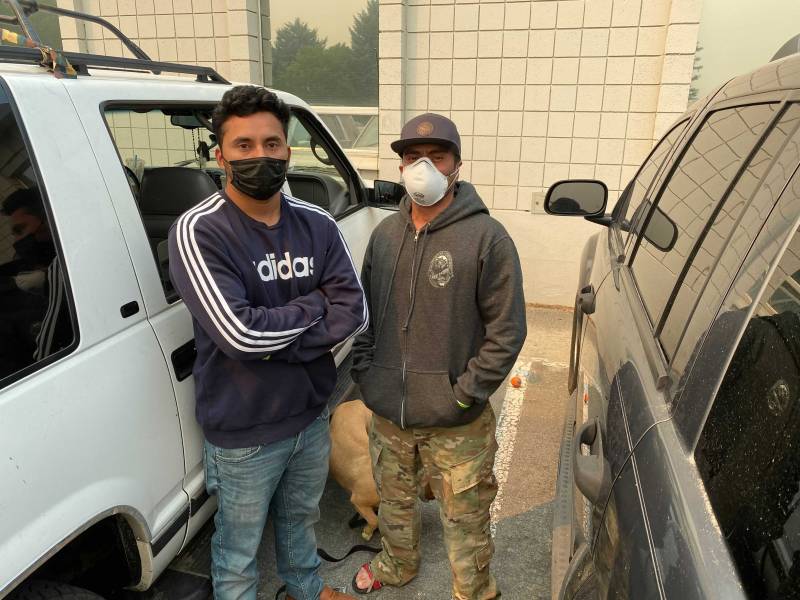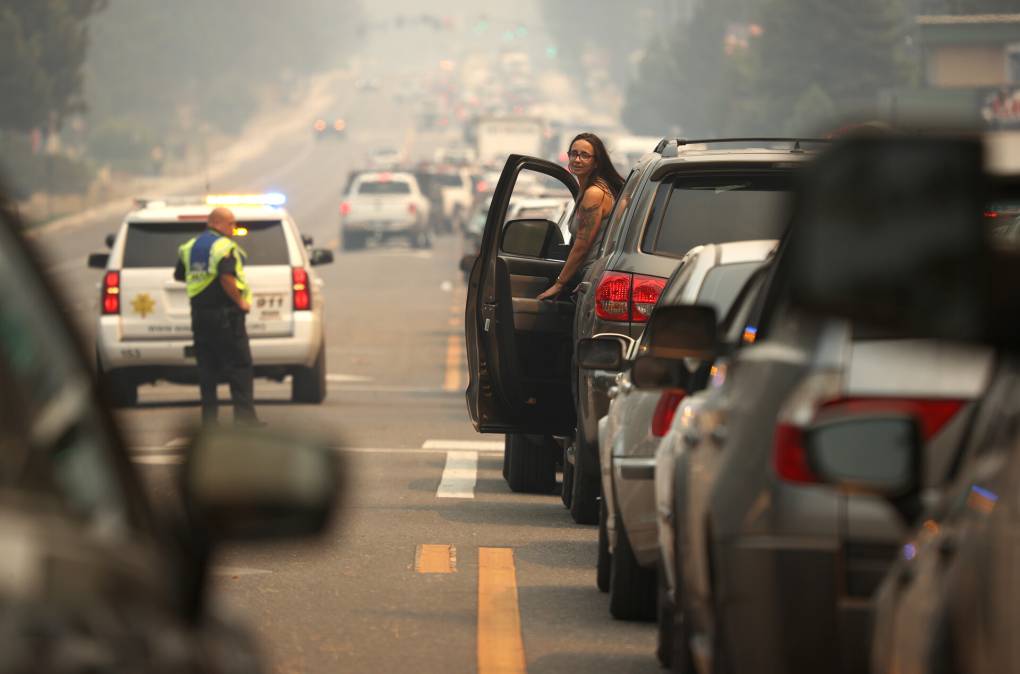Longtime South Lake Tahoe resident Bill Schaeffer has been unhoused, on and off, for years.
But just two weeks ago, in a stroke of luck, a local support group for unhoused people helped him move into a small affordable unit in town.

Longtime South Lake Tahoe resident Bill Schaeffer has been unhoused, on and off, for years.
But just two weeks ago, in a stroke of luck, a local support group for unhoused people helped him move into a small affordable unit in town.
“It was like hitting the lottery to find a place for $350 a month, which I can afford on my social security check,” said Schaeffer, 68, who first settled by the lake nearly 50 years ago. “Bought a lot of things to fix it up. Hopefully it’ll still be there.”
Now, with the Caldor Fire burning in the Tahoe basin, Schaeffer is once again temporarily without a home. Since Monday, when all 22,000 South Lake Tahoe residents were ordered to leave, he’s been staying at an evacuation center in Carson City, across the border in Nevada.
“If I lose my place to live, then I’m going to probably be forced back to being homeless again,” he said, noting that rents here, like elsewhere throughout California, have risen to be “sky high.” While tiny by big-city standards, the unhoused population in and around South Lake Tahoe has increased with the rents, numbering roughly 110 at last official count.

Tahoe is known for its million-dollar ski villas and sleek Airbnbs — and, more recently, as a pandemic escape for city dwellers. But thousands of lower-income workers live here year round, keeping this tourist destination operating.
And if their homes are lost in the fire, many fear they won’t have the luxury of moving back.
That concern was evident this week among some residents staying in the evacuation center in Carson City.
Among them is José Mora, a 37-year-old construction worker from South Lake Tahoe, who waited until Monday’s evacuation order to flee in his car with just a bag of clothes. Mora moved here as a young child from his native Jalisco, Mexico, a region many of South Lake’s Latino residents come from.
The Latino community here, which has grown markedly in recent years, now makes up more than 30% of the city’s population. Many work low-wage construction and service jobs, which only since the pandemic have more widely come to be recognized as “essential.”
Mora says if the area is hit hard by the fire, he’ll likely have to relocate in search of work.
“If it burns, it’s going to be hard, a lot of years to recover, and it’s not going to be the same,” he said. “It’s going to take years to be where we’re at right now.”

That’s the same possibility 34-year-old Chelsea Cunningham foresees. A South Lake Tahoe native, she lives with her husband in a trailer they rent for $600 a month.
“If it burns, then I can’t afford to live in Tahoe anymore, which is unfortunate, because I was born and raised there,” she said. “Tahoe has changed drastically over the course of my time being there. And it makes me sad to say that I can’t live in the place where I was born.”
Cunningham evacuated earlier this week with her parents, who live in nearby Meyers.

Her father, Clay Cunningham, says he’s frustrated fire managers didn’t expect the blaze to breach the summit and cascade into the basin, as it did Monday.
“I think that they just really were overly confident,” he said. “They really thought they had a handle on this. That’s what they kept saying on the news. That’s why a lot of people were not prepared. And just nothing they told us really came out to be what was really happening.”
Notwithstanding, Cunningham credited the heroic work of fire crews, who have so far successfully steered the flames away from South Lake and protected scores of houses in neighboring communities.
Now, he says, there’s a real possibility the blaze could wipe out a large chunk of the region’s increasingly scarce and pricey housing stock, leaves those on the lower end of the economic spectrum in the lurch.
“There’s a real housing shortage in Lake Tahoe,” he said. “So now when you get rid of this much more housing, where’s everybody gonna live?”
He says there are already plenty of restaurants and other businesses around town that can’t find enough employees to stay open full time.
“It’s gonna put a real damper on business in Lake Tahoe when there’s no housing — you’ll have no employees to take care of people when they come up here.”
To learn more about how we use your information, please read our privacy policy.